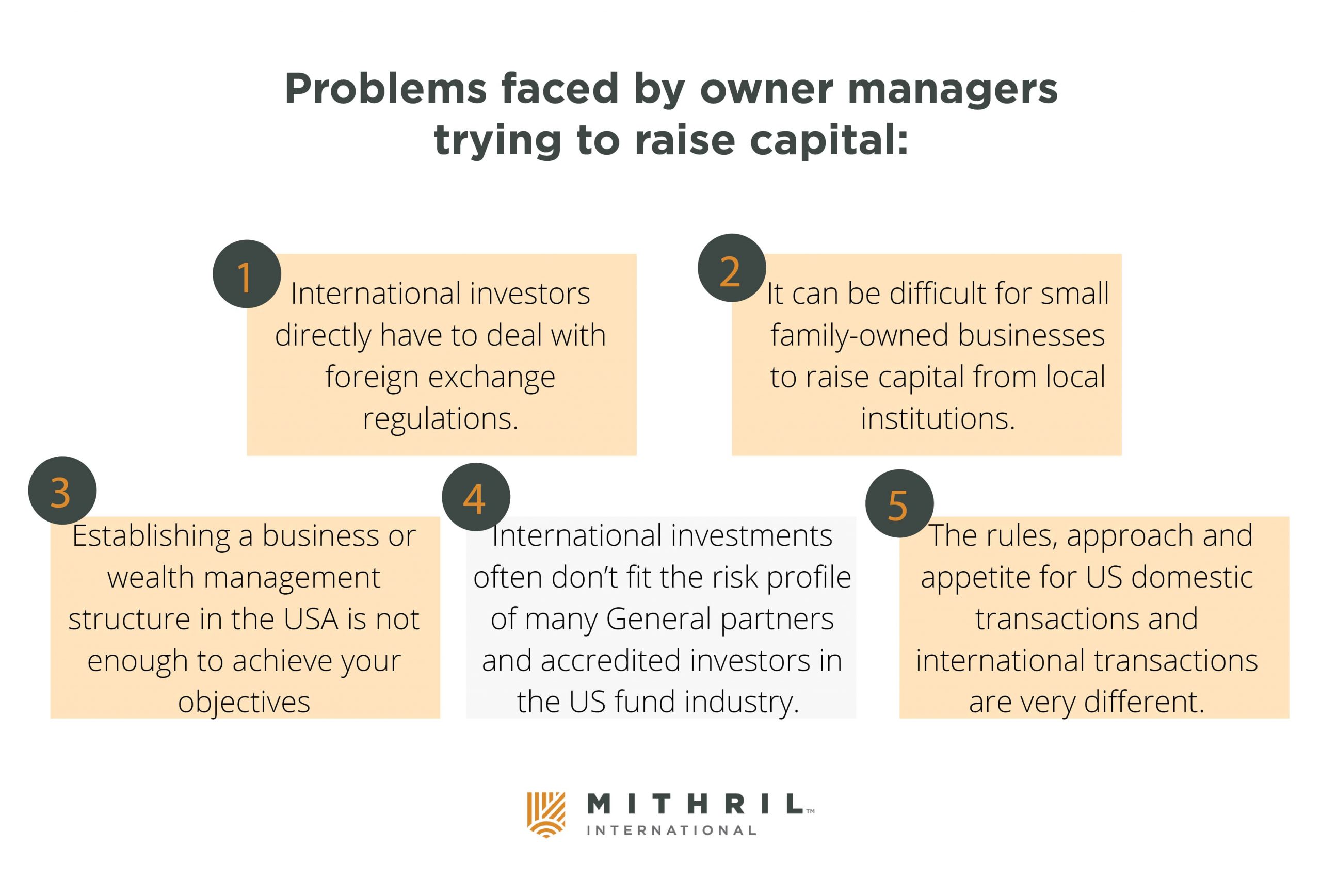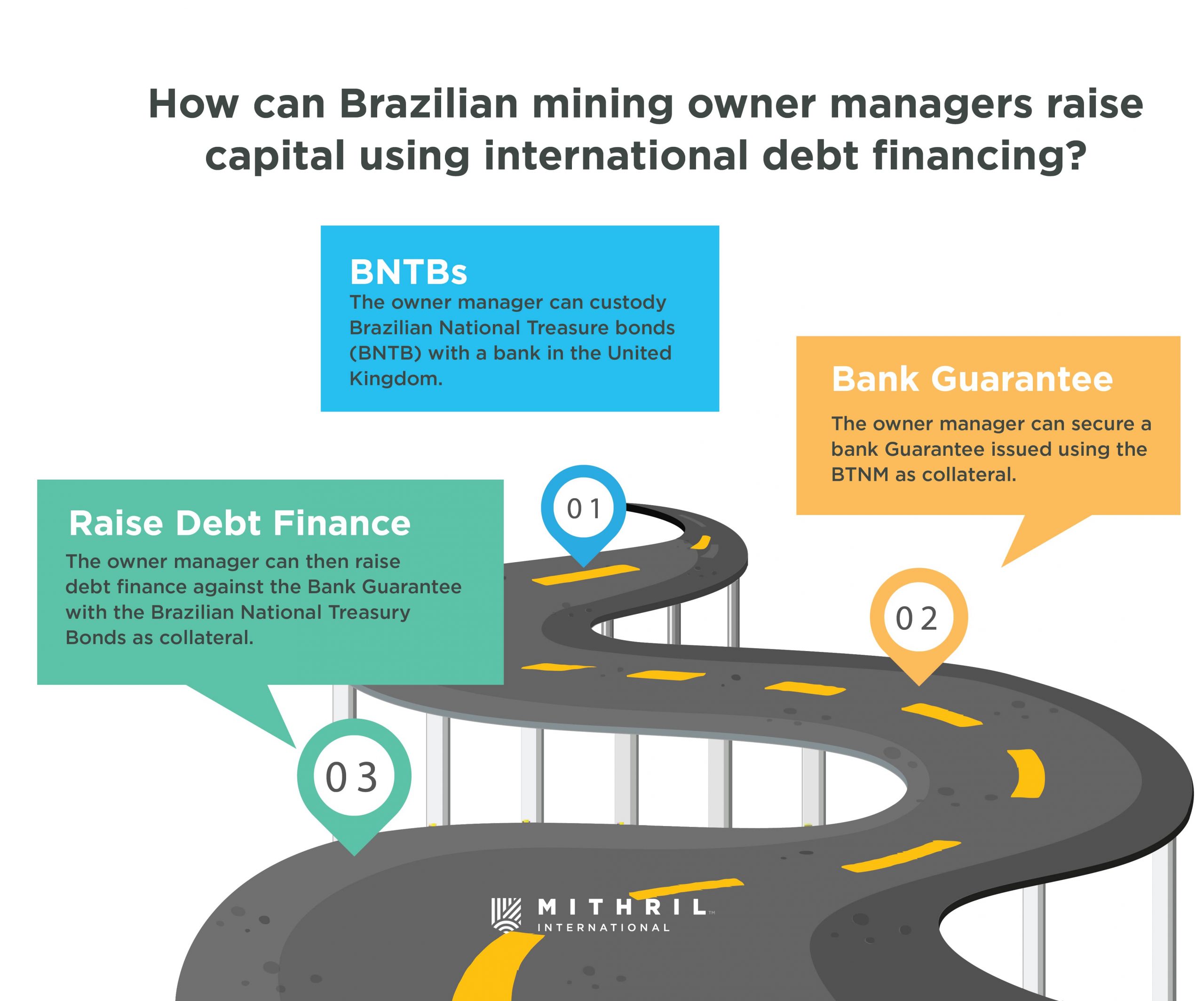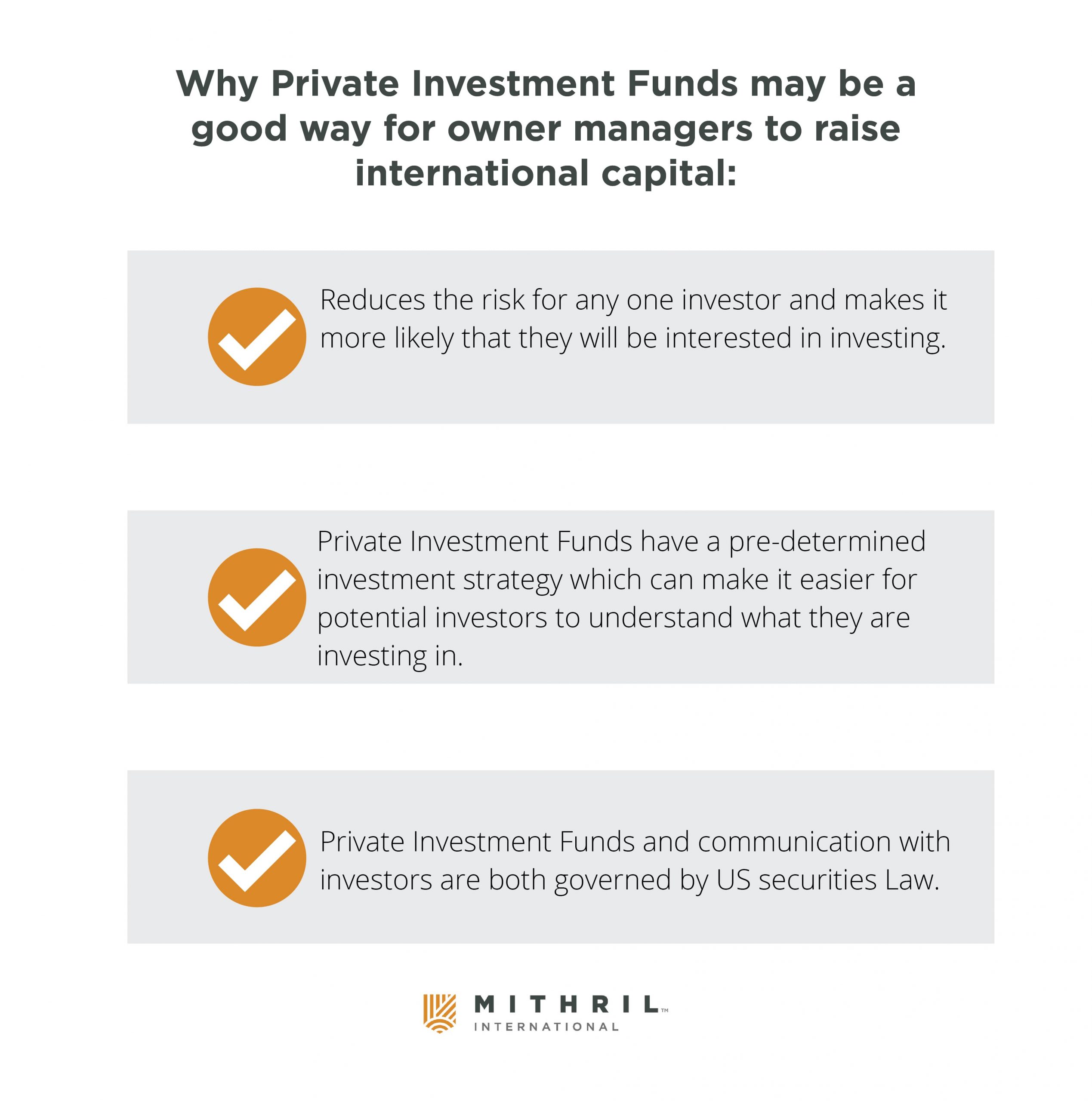Should owner-managers of Brazilian mines use International debt financing or international fundraising to raise capital for their mining projects?
If you are an owner-manager of a mining business in Brazil and you are trying to raise less than US50M for a small mining project, raising capital from international investors and sources is difficult. This is because, in Brazil, most banks do not view projects requiring less than US100M as profitable in terms of the fees they can earn.
 Some Brazilian owner-operators will raise debt capital from UK banks using collateral that is in the custody of a British or EU private bank and then obtain a Bank Guarantee (BG) based on those deposits. Bank guarantees are a way of mitigating credit risk by providing a guarantee from a bank to a borrower that the funds will be repaid if the borrower defaults. This type of financing arrangement is often used by owner-managers of mines in Brazil as a way to raise capital.
Some Brazilian owner-operators will raise debt capital from UK banks using collateral that is in the custody of a British or EU private bank and then obtain a Bank Guarantee (BG) based on those deposits. Bank guarantees are a way of mitigating credit risk by providing a guarantee from a bank to a borrower that the funds will be repaid if the borrower defaults. This type of financing arrangement is often used by owner-managers of mines in Brazil as a way to raise capital.
Third-party persons with a lot of collateral in private banks will sometimes obtain bank guarantees and then rent their BGs to owner-managers for a fee under a range of contractual conditions. The owner-managers of the mine can then use the BG as collateral to gain access to financing.
This Bank guarantee can be used as collateral for a loan from a foreign bank. The loan can be in Brazilian reals or in a foreign currency. The main advantage of this type of financing is that it allows owner managers to raise capital without having to go through the traditional local banking system.
As an owner-manager, if you are looking for financing for your mining project in Brazil, you may want to consider using a bank guarantee as collateral for a loan from a foreign bank. This type of financing can be more expensive than traditional project financing, but it can also be a viable option if you cannot obtain traditional financing.
Cost of financing
This type of financing is more expensive than traditional project financing because the interest rates are higher (12-18%) and there are usually fees for getting the BG in the first place (2-5%). However, it can still be a viable option if you cannot obtain traditional financing. This type of financing and arrangement is much more expensive and riskier than establishing a private investment fund and obtaining investment capital from private investors.
A regulated structure is still required
Keep in mind that this type of financing is still credit risk financing and so you will need to have a good business plan and management team in place to get the financing. In addition, the project will need to be well structured to mitigate the credit risk for the lender.
The disadvantages of this type of financing
This option is more expensive than traditional financing. The owner-manager must pay fees for both the BG, arranging the finance, and interest on the financing. Also:
- there is a higher risk of default.
- the process can be complicated and time-consuming.
Overall, this type of financing is more expensive and there is more risk involved.
Banks can change their credit policy
Sometimes banks change their risk appetite, or something can occur in the credit markets.
Events like these can impact the continuation of the financing. Owner managers who do not have considerable resources of their own thus face a level of exposure as they may have no ability to respond to events that interrupt the financing being in place.
International financing is better suited to large corporations
International financing mechanisms are really more suited to large corporations or owners that do not have significant credit risk. They are a way of getting financing without going through the traditional banking system.
The advantage of these financing mechanisms is that:
- They can be quicker and easier to arrange than traditional project finance.
- The owner-manager using these mechanisms does not have to spend time and money engaged in promotional activities to find and locate investors.
A high-level example of how international debt financing works:
 1️. The owner places their Brazilian National Treasure bonds (BNTB) in custody with a bank in London, UK.
1️. The owner places their Brazilian National Treasure bonds (BNTB) in custody with a bank in London, UK.
Getting an institutional custodian to take custody of your bonds as many owners know is not straightforward. Different banks have different appetites for being the custodian of bonds. Brazilian National Treasury bonds can however be put in custody with several institutions.
2️. Getting a Bank Guarantee issued using the BNTB as collateral.
Now that a bank or regulated financial institution has taken custody of those bonds in the UK jurisdiction, these bonds can be used as collateral at fair market value. However, it is important to note that additional deposits may be required.
3️. Then raising debt finance against the Bank Guarantee with the Brazilian National Treasury Bonds as collateral.
These methods are sometimes used by large mining corporations and wealthy groups.
Owners should consider international fundraising methods that are “fit for purpose”:
✅ Structures – Choose a structure that can be cost-effectively managed. Structures are cheaper to manage and operate than complex agreements.
✅ Owner control – Owners should seek out international financing methods that protect investors but give the owner control. If investors do not believe in the owner operators’ capability, they should not invest.
The owner-manager should try to work out what is the best way to raise international capital
- Owner managers should choose methods that are suited to them and not try to use methods just because institutions and very large corporations use them.
- Large businesses and corporations have the resources and access to multiple streams of finance. Large firms have dedicated corporate finance teams. Owner managers don’t have these resources or capabilities.
- So owner-managers should not just use methods that they see large corporations using. Owners need to do their own research and find manageable ways of doing international fundraising.
- One solution for owner-operators fundraising in the US is to use private investment funds which provide investor protection for US-Accredited investors. Private investment funds are regulated structures that investors often demand when investing in international projects.
 Private Investment Funds provide a way for investors to gain exposure to exciting international ventures while also providing crucial protections, such as investor protection laws. By utilizing these Private Investment Funds, owners can access the financial resources they need to grow their business and succeed in today’s competitive global marketplace. Whether you are an existing industry player or a new entrepreneur just starting out, Private Investment Funds offer a valuable option for raising the international capital you need to take your business to the next level.
Private Investment Funds provide a way for investors to gain exposure to exciting international ventures while also providing crucial protections, such as investor protection laws. By utilizing these Private Investment Funds, owners can access the financial resources they need to grow their business and succeed in today’s competitive global marketplace. Whether you are an existing industry player or a new entrepreneur just starting out, Private Investment Funds offer a valuable option for raising the international capital you need to take your business to the next level.
If your business is raising less than US100M, and you are using complex corporate finance:
🔘 It is much more difficult to negotiate with a large institution.
🔘 Owners have relatively little leverage with large institutions and therefore cannot negotiate with large institutional banks. That is just a fact.
Unlike large corporations, owner-managed mining businesses may not have multiple sources of finance. An owner-managed, closely held company is unlikely to have leverage or negotiating power in relation to a large institutional bank that may be a global brand. In a credit crisis if one bank is impacted all banks are. If the credit market changes, ask yourself, do you have the ability to adapt quickly and obtain another source of funding?
Is debt financing ideal for owner-managers?
As an owner-manager there are many things that you should consider when determining whether debt financing is right for you:
When you access capital via credit mechanisms your business is subject to the credit cycle
We are not talking about credit risk but the credit cycle. The financial system is dynamic. Things change. If banks decide to change their credit policy, that change can impact your business. Unlike large corporations, owner-managed mining businesses may not have multiple sources of finance. In a credit crisis if one bank is impacted all banks are. If the credit market changes, ask yourself, do you have the ability to adapt quickly and obtain another source of funding?
The complexity of navigating credit risk
Collateral agreements, bank guarantees, and bonds can be quite complex when used to obtain access to international capital. If your business does not employ a general counsel, think about the legal costs of changing and dealing with complex financial arrangements. It is often more expensive to employ extra-legal staff than it would be to use a specialist company that can monitor and change the arrangements as your business needs evolve.
The credit risk of the project is typically modeled in the bank guarantee and the financing agreement. This type of financing arrangement is better suited to larger corporations that have less credit risk than an owner-manager does.
Bank guarantees can be a complex financing tool, but they may be a good option for owner-managers of mines in Brazil who are looking to raise capital. It is important to understand the credit risk involved and to have the legal resources in place to deal with the complexity of these types of arrangements. Specialist firms that can help you monitor and change the arrangements as your business needs evolve may be a worthwhile investment.
In summary:
How do you feel about using your project as collateral for the financing? If the project fails, will you be able to repay the debt? Do you want that type of pressure on the success of the project?
Bank guarantees and letters of credit are common in large corporate financing. However, they require a higher level of understanding to use them effectively. For smaller companies and owner-managers, is this type of debt financing ideal?
When considering whether to use bank guarantees or letters of credit as a means of financing, the owner-manager should consider the following:
– The impact of the credit cycle on their business
– The complexity of the financial arrangements
– The risks associated with using their project as collateral.
We are not talking about credit risk but the credit cycle. The financial system is dynamic. Things change. If banks decide to change their credit policy, that change can impact your business and access to financing.


Leave a Reply